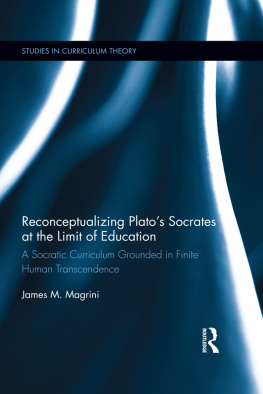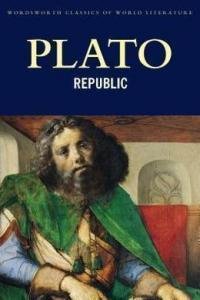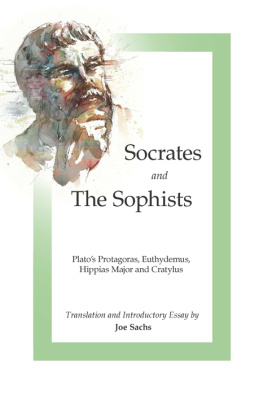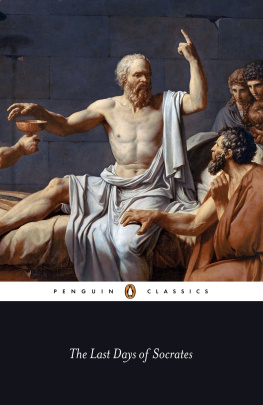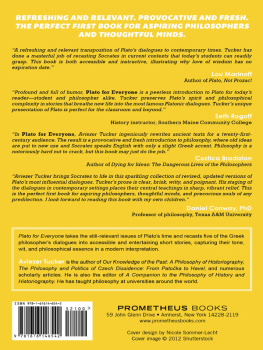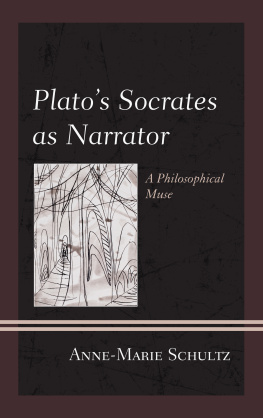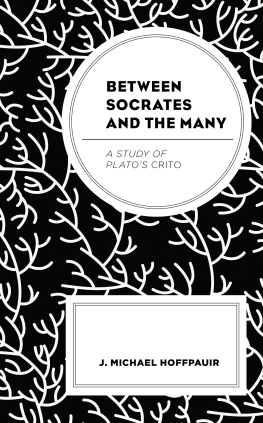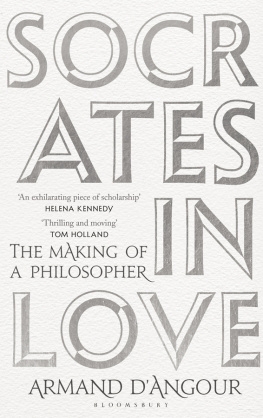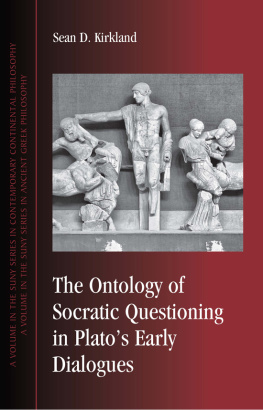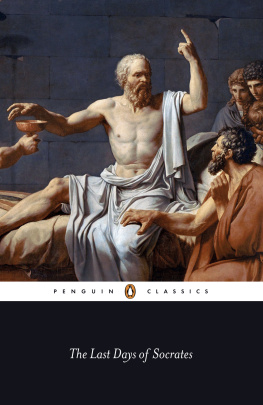First published 2017
by Routledge
711 Third Avenue, New York, NY 10017
and by Routledge
2 Park Square, Milton Park, Abingdon, Oxon, OX14 4RN
Routledge is an imprint of the Taylor & Francis Group, an informa business
2017 Taylor & Francis
The right of James M. Magrini to be identified as author of this work has been asserted by him in accordance with sections 77 and 78 of the Copyright, Designs and Patents Act 1988.
All rights reserved. No part of this book may be reprinted or reproduced or utilised in any form or by any electronic, mechanical, or other means, now known or hereafter invented, including photocopying and recording, or in any information storage or retrieval system, without permission in writing from the publishers.
Trademark notice: Product or corporate names may be trademarks or registered trademarks, and are used only for identification and explanation without intent to infringe.
Library of Congress Cataloguing in Publication Data
A catalog record for this book has been requested
ISBN: 978-1-138-69046-2 (hbk)
ISBN: 978-1-315-53692-7 (ebk)
Typeset in Bembo
by Apex CoVantage, LLC

James M. Magrinis book provides an intellectually compelling and historically motivated diagnosis for the political and educational predicament of our times. It provides the reader with a vista to overcoming the atrophy of democracy when neoliberal democracy is an oxymoron at best in its attempt of a theory of everything. The reactivation of moral discourse in the spirit of Platos Socrates would render the spark of hope to the often tragic tale of current Western education.
Tero Autio, Tallinn University, Estonia
James M. Magrini has with his book Reconceptualizing Platos Socrates at the Limit of Education: A Socratic Curriculum Grounded in Finite Human Transcendence succeeded in conducting a rigorous close reading of Platos dialogues that grapples with etymology and translation as well as providing a thematic analysis of Platos Socrates. From a phenomenological-hermeneutic perspective Magrini develops his philosophy of education by engaging the dialogues in a critique that brings to light new ways of understanding the Socratic method of education, which have practical and theoretical implications not only for teachers and philosophers of education, but for any student of philosophy interested in Platos dialogues and, specifically, Platos Socrates.
Elias Schwieler, Stockholm University, Sweden
James M. Magrini pulls together the exegetical method of phenomenological hermeneutics and the writings of Plato, with special attention to Attic meanings, to produce a compelling and exhaustive scholarly analysis for philosophers, classicists, and educators alike.
Sam Rocha, University of British Columbia, Canada
Studies in Curriculum Theory
William F. Pinar, Series Editor
Burke/Segal
For additional information on titles in the Studies in Curriculum Theory series visit www.routledge.com/education
Expanding Curriculum Theory
Dis/Positions and Lines of Flight
McKnight
Schooling, The Puritan Imperative, and the Molding of an American National Identity
Educations Errand Into the Wilderness
Pinar (Ed.)
International Handbook of Curriculum Research
Morris
Curriculum and the Holocaust
Competing Sites of Memory and Representation
Doll
Like Letters In Running Water
A Mythopoetics of Curriculum
Westbury/Hopmann/Riquarts (Eds.)
Teaching as a Reflective Practice
The German Didaktic Tradition
Reid
Curriculum as Institution and Practice
Essays in the Deliberative Tradition
Pinar (Ed.)
Queer Theory in Education
Huebner
The Lure of the Transcendent
Collected Essays by Dwayne E.Huebner.
Edited by Vikki Hillis. Collected and Introduced by William F. Pinar
Reconceptualizing Platos Socrates at the Limit of Education
A Socratic Curriculum Grounded in Finite Human Transcendence
Magrini
Contents
I am grateful to Professor William Pinar for his continued support of my scholarship. Although never having studied under him, I was always already his student. I thank Dr. Matt Dewar for our enlightening and ongoing conversations regarding all things philosophical. I am indebted to Professor Michael Bonnett for his willingness to provide excellent commentary on my work in the philosophy of education relating to phenomenology. I thank Professor Iain Thomson for his invaluable assistance with this and previous manuscripts. I extend a heartfelt thanks to my Senior Editor, Naomi Silverman: You have always supported my scholarship and your willingness to assist makes the process of preparing manuscripts for publication an enjoyable and rewarding experience. Lastly, I am thankful to have studied philosophy under Professor Sean D. Kirkland at DePaul University, Chicago, IL.
Reconceptualizing Platos Socrates at the Limit of Education
Bridging the gap between interpretations of Third Way Platonic scholarship and phenomenological-ontological scholarship, this book argues for a unique ontological-hermeneutic interpretation of Plato and Platos Socrates. Reconceptualizing Platos Socrates at the Limit of Education offers a re-reading of Plato and Platos Socrates in terms of interpreting the practice of education as care for the soul through the conceptual lenses of phenomenology, philosophical hermeneutics, and ontological inquiry.
Magrini contrasts his re-reading with the views of Plato and Platos Socrates that dominate contemporary education, which, for the most part, emerge through the rigid and reductive categorization of Plato as both a realist and idealist in philosophical foundations texts (teacher education programs). This view also presents what he terms the questionable Socrates-as-teacher model, which grounds such contemporary educational movements as the Paideia Project, which claims to incorporate, through a scripted-curriculum with Socratic lesson plans, the so-called Socratic Method into the Common Core State Standards Curriculum as a technical skill that can be taught and learned as part of the students critical thinking skills. After a careful reading incorporating what might be termed a Third Way of reading Plato and Platos Socrates, following scholars from the Continental tradition, Magrini concludes that a so-called Socratic education would be nearly impossible to achieve and enact in the current educational milieu of standardization or neo-Taylorism (Social Efficiency). However, despite this, he argues in the affirmative that there is much that educators can and must learn from this non-doctrinal re-reading and re-characterization of Plato and Platos Socrates.
James M. Magrini is Adjunct Professor of Philosophy and Ethics, College of Dupage, USA.
Reconceptualizing Platos Socrates at the Limit of Education : A Socratic Curriculum Grounded in Finite Human Transcendence is intended for academics and advanced students of ancient philosophy, philosophy of education, and curriculum studies who are interested in new and challenging readings of Platos Socrates that contribute to a view of education and learning embracing ontology, phenomenology, and philosophical hermeneutics. I do not formalize, or, in the extreme, systematize, a Socratic view of teaching that might be related to and applied within the contemporary standardized classroom, such as we find in the Socratic Seminar Movement. Instead, I focus on Socratic learning and not Socratic teaching and there is a difference . I approach the interpretation of Socratic learning from the perspective of Third Way Platonic scholarship, which is not so much an organized school as it is a philosophical and interpretive way of reading Plato as a non-doctrinal philosopher. So, much like the field of curriculum theorizing , it is a wide reaching, multi-perspectival, and ever-developing movement in Platonic interpretation offering alternative readings that stand apart from traditional Anglo/analytic Platonic scholarship. For example, Third Way scholarship reassesses and reinterprets the form of knowledge of the virtues that Socrates pursues in light of what I term philosophical understanding ( phronesis ), which is a way of knowing that is irreducible to propositional discourse, definitive Socratic definitions, or axiomatic first principles.

